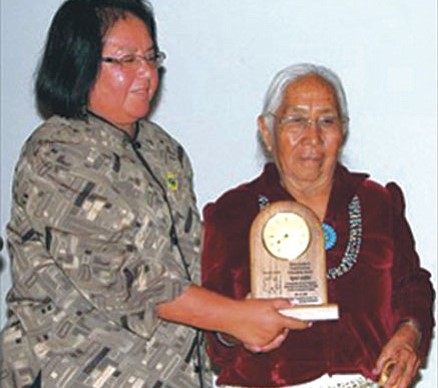
Agnes Laughter, a Navajo weaver who successfully challenged the constitutionality of Arizona’s in-person voting procedures and restrictive identity requirements for Native Americans, has died, tribal officials said.
Navajo Nation Council officials said Laughter died Sunday, but no cause was immediately released.
Born in 1932 in a traditional Navajo hogan without running water or electricity, Laughter was 16 when Native Americans got the right to vote in Arizona.
In 2006, she was part of a lawsuit that led to the U.S. Justice Department expanding the list of documents that can serve as tribal identification at polling places.
It was in response to Arizona’s 2004 voter-approved measure mainly aimed at preventing undocumented migrants from voting and receiving public benefits.
Laughter had been using her thumbprint for most of her adult life before the new law required birth certificates, bank statements, or driver’s licenses.
“You’re not welcome here because you don’t have the proper ID,’” Laughter later recalled what an election official told her in 2006. “I was so humiliated. It was like I didn’t even exist.”
Navajo officials said Laughter — a renowned weaver from the community of Chilchinbeto — did not have a birth certificate, didn’t speak English, and never attended school.
In 2008, the Justice Department revised procedures to provide a broader, non-exhaustive list of documents that may serve as tribal identification to vote.
“We honor the life work of the late Agnes Laughter and the legacy she leaves behind,” tribal council Speaker Seth Damon said in a statement. “Future generations will remember her as a protector of our right to vote and the beautiful Navajo rugs she created. The Navajo people are grateful for her courage.”
Republished with the permission of the Associated Press.













